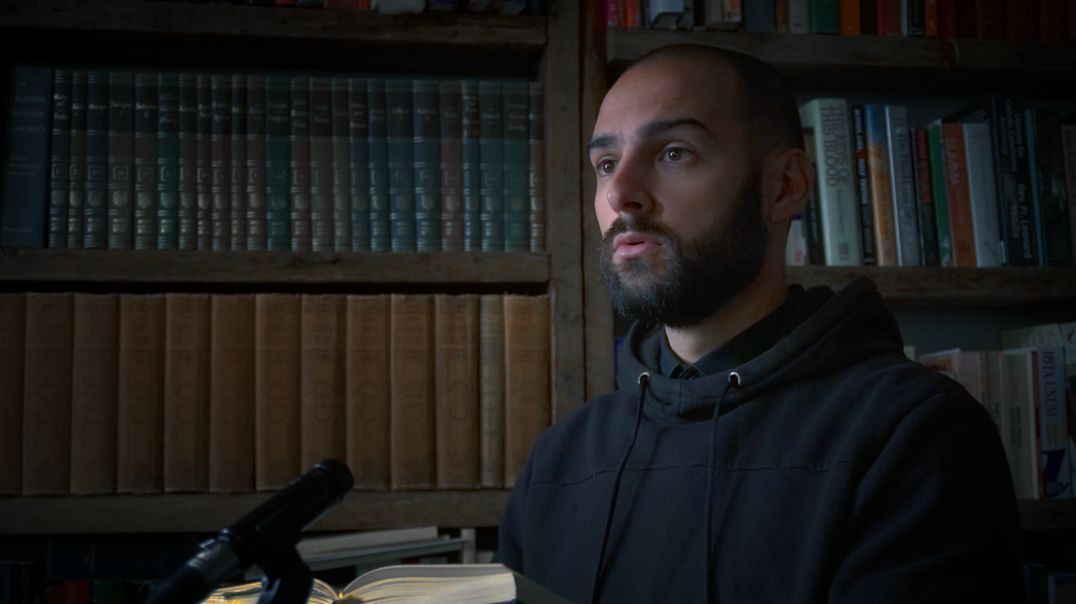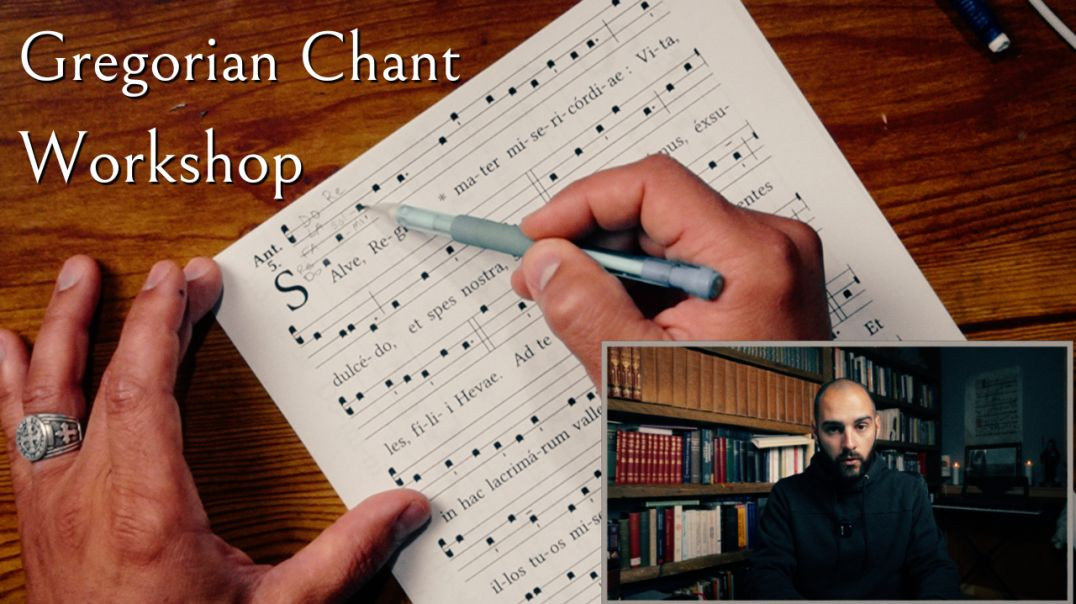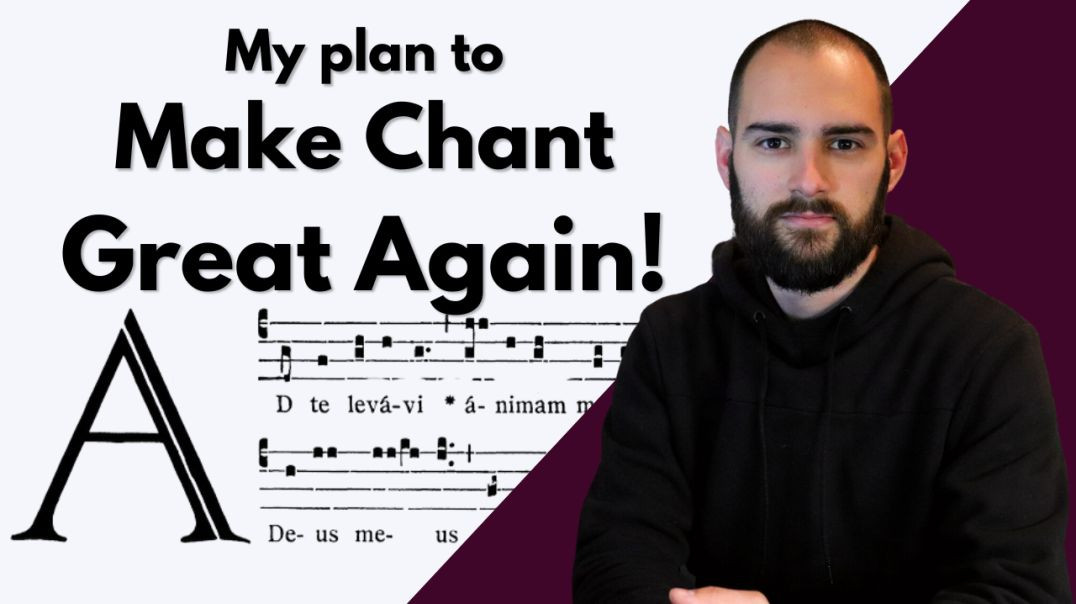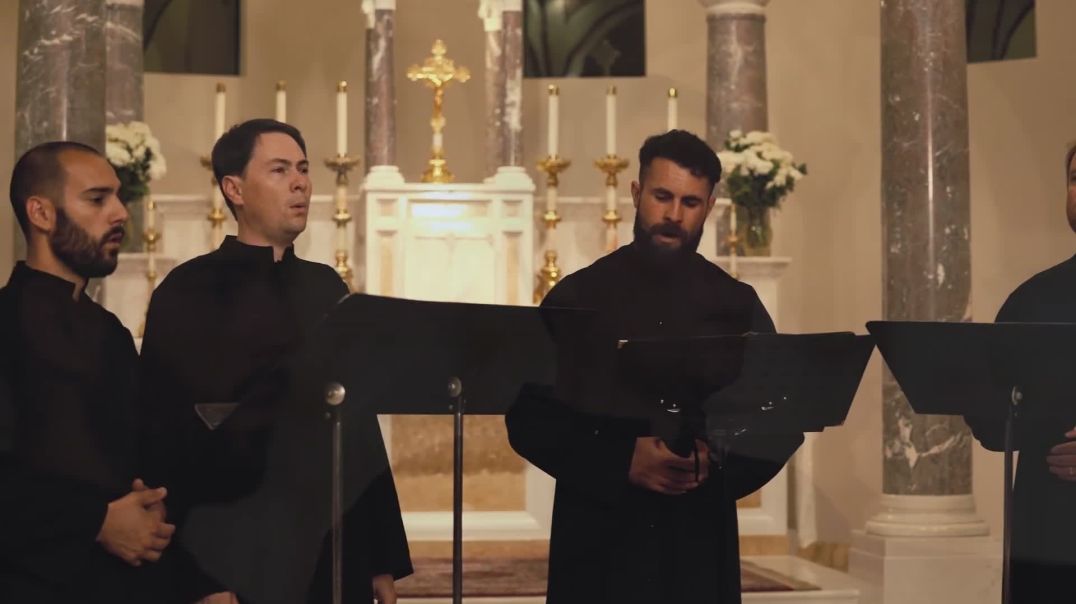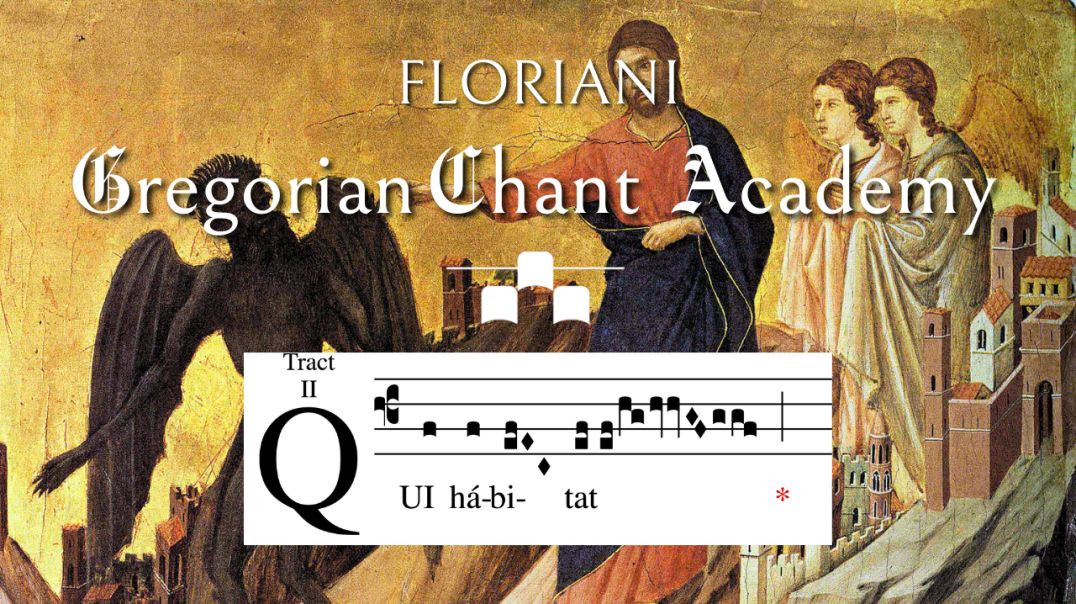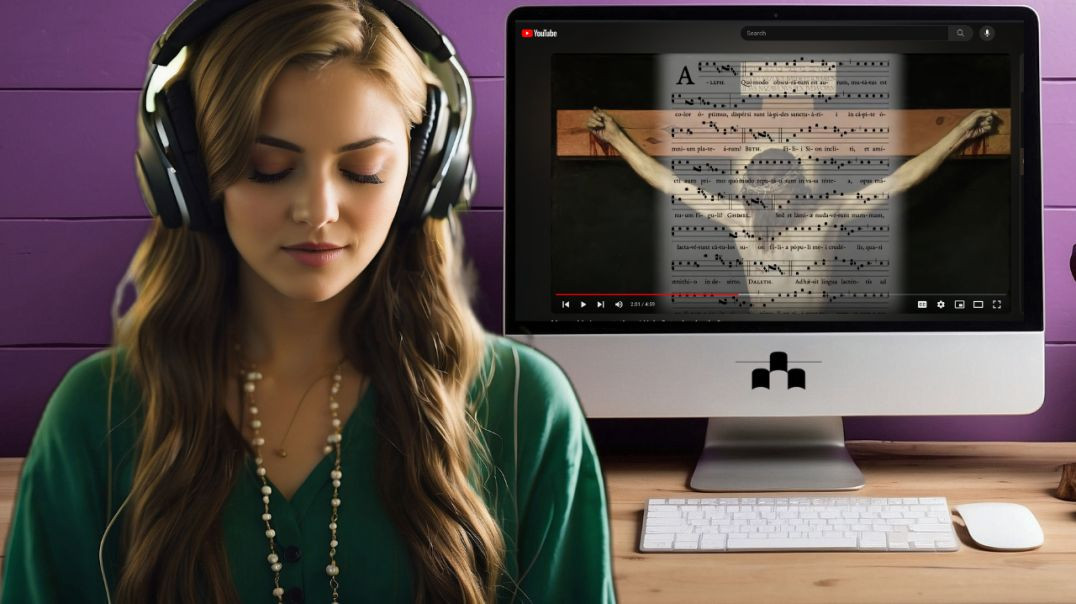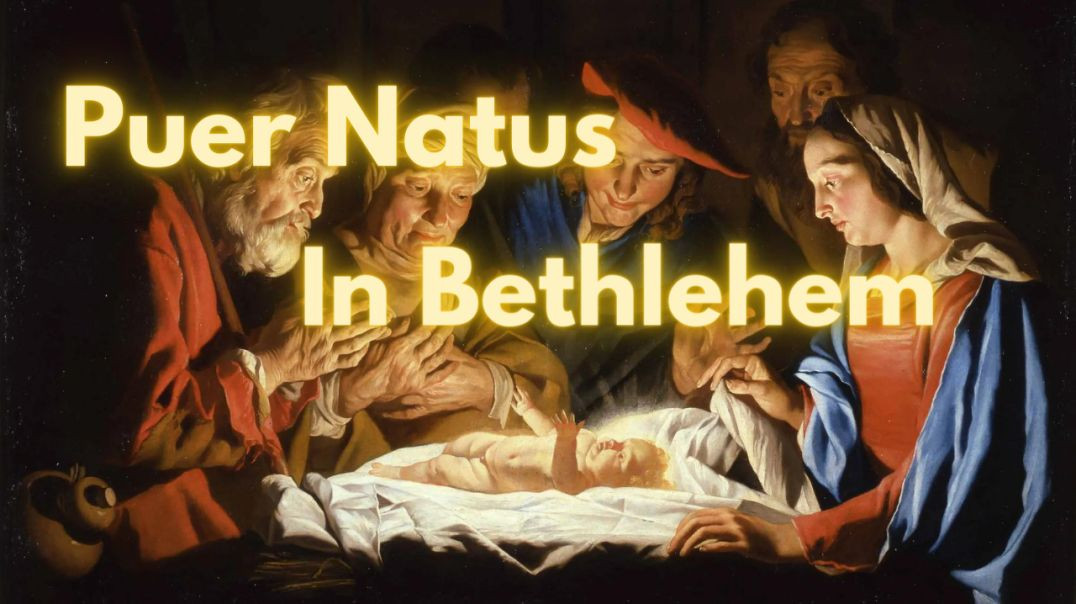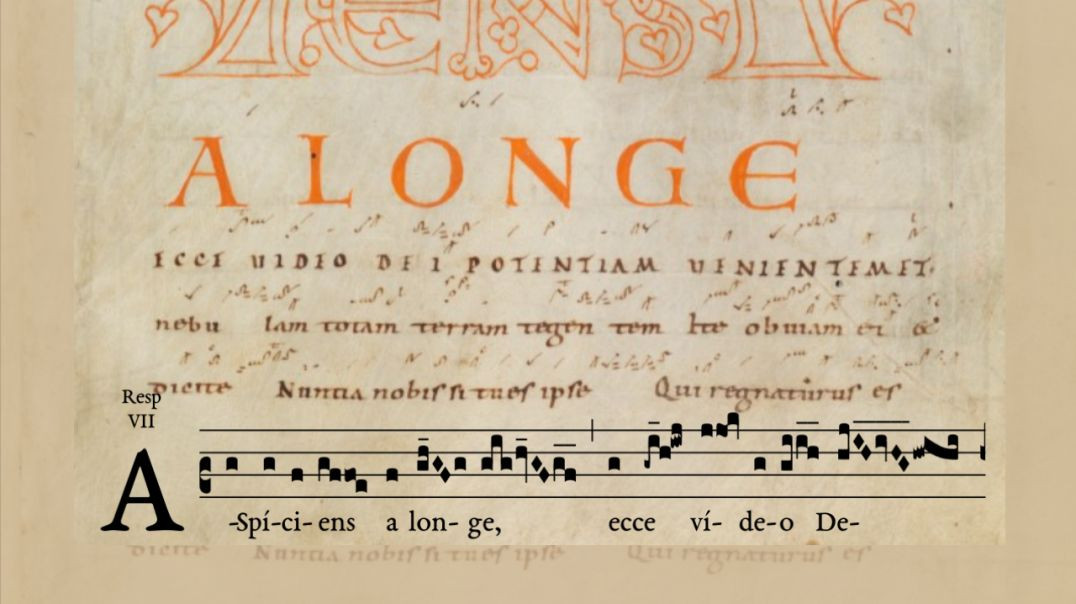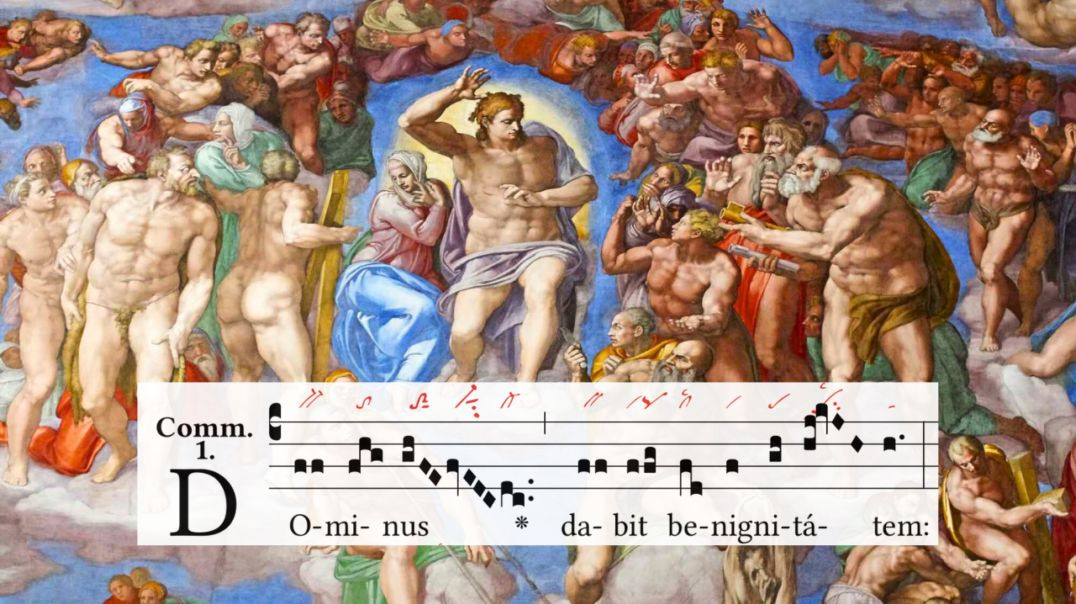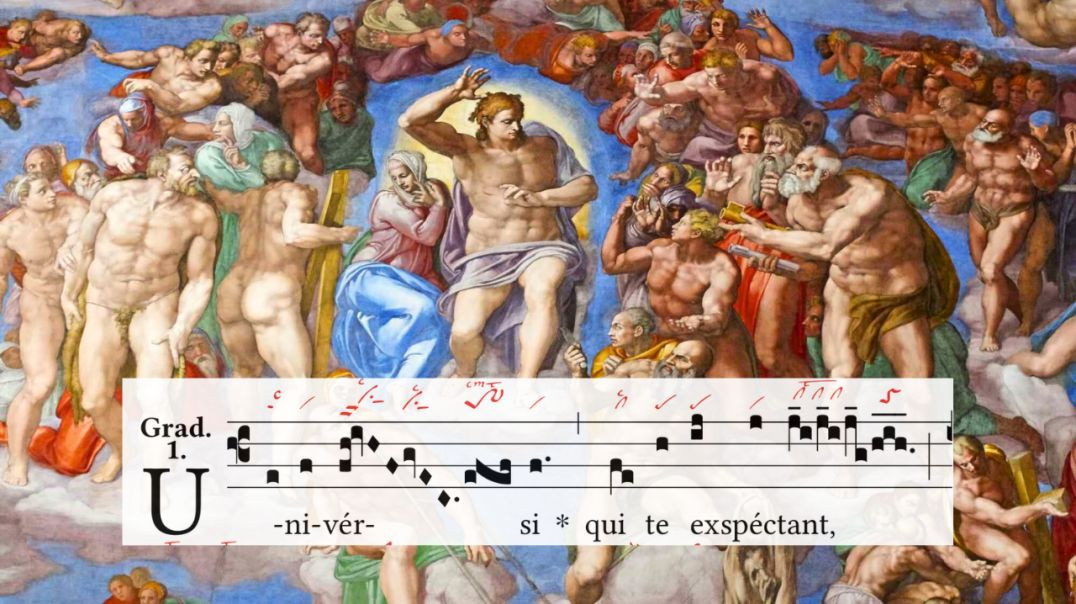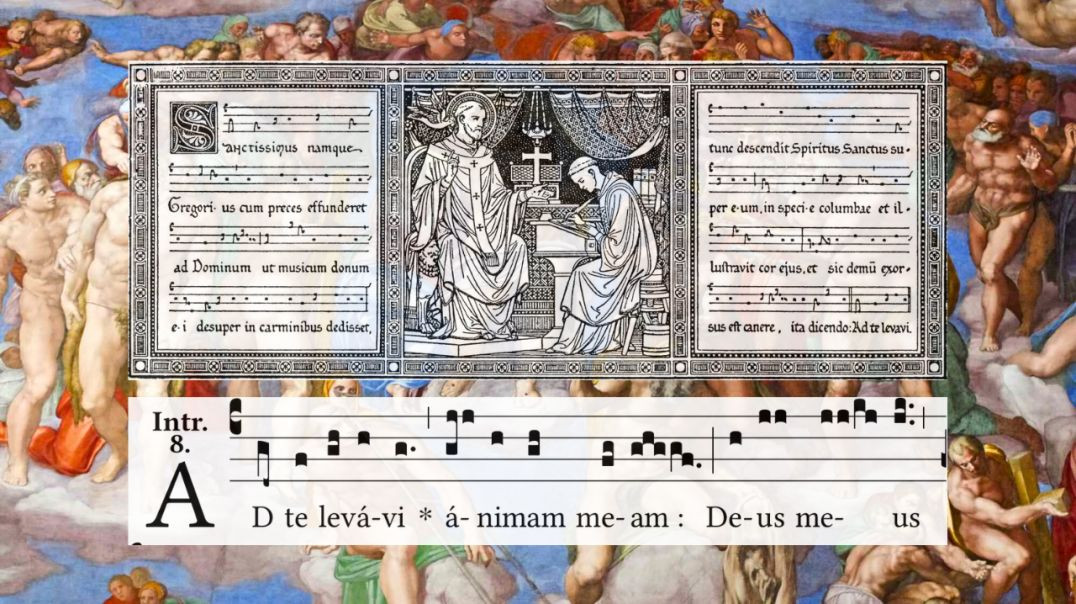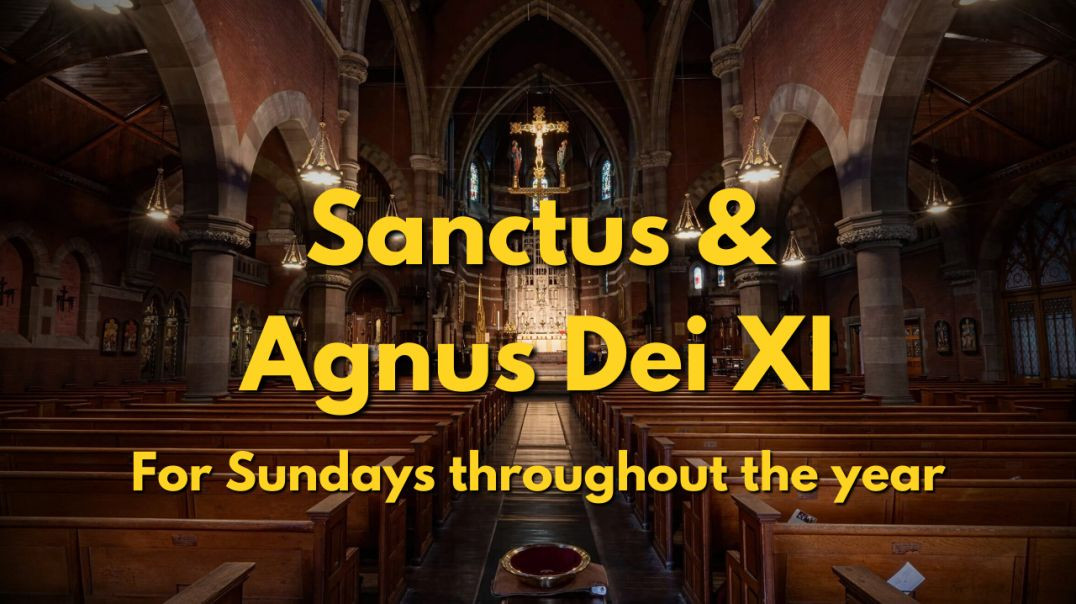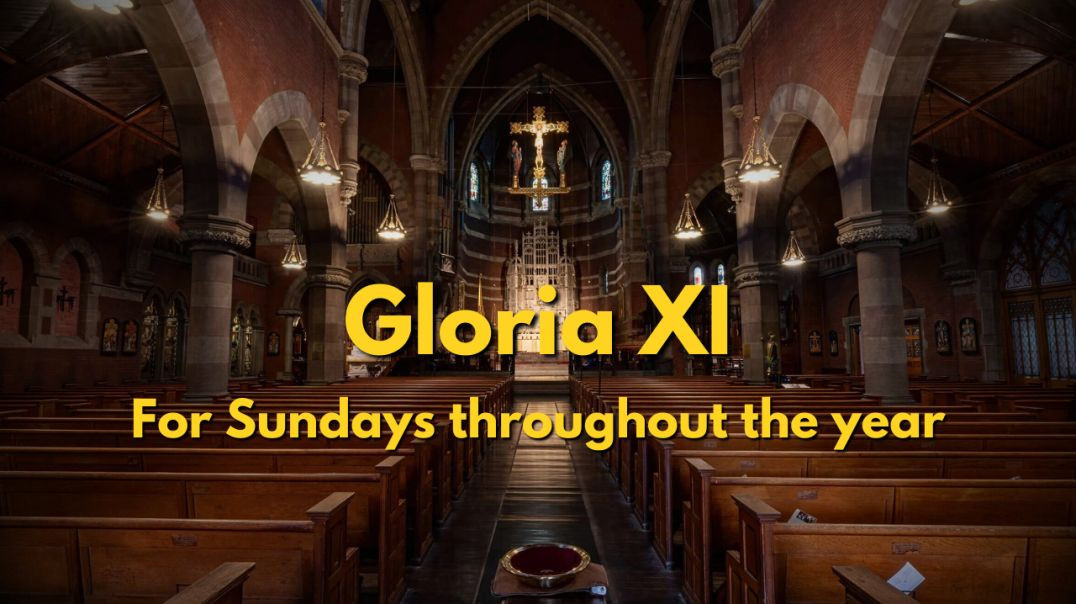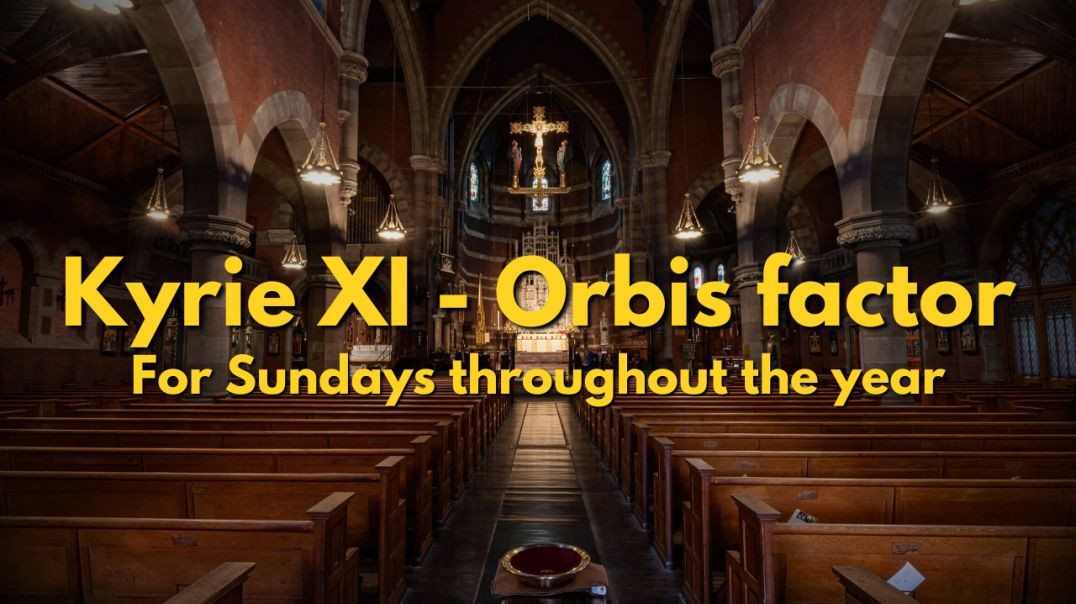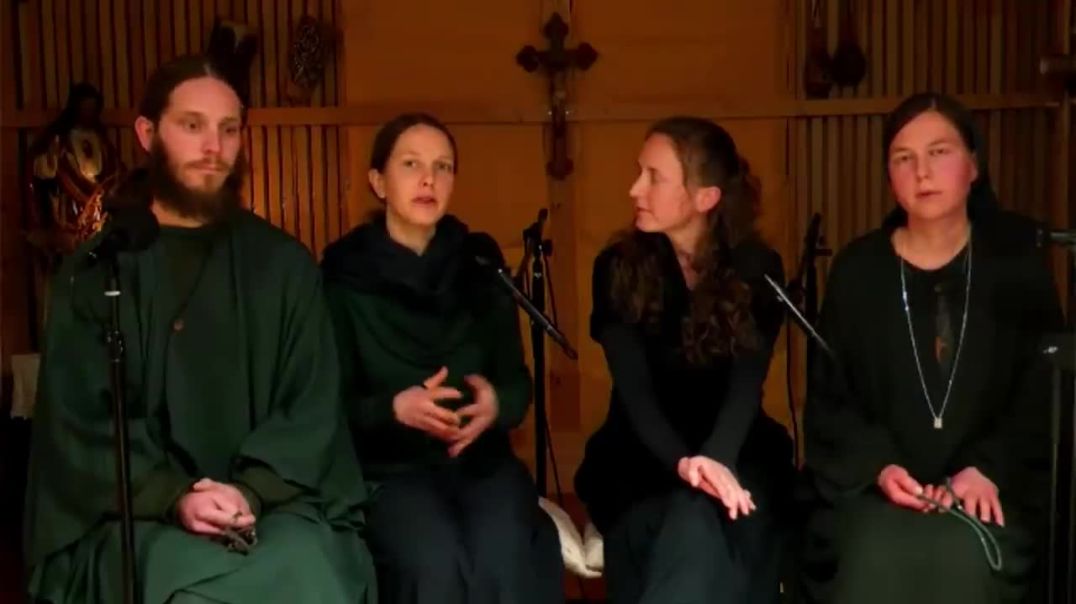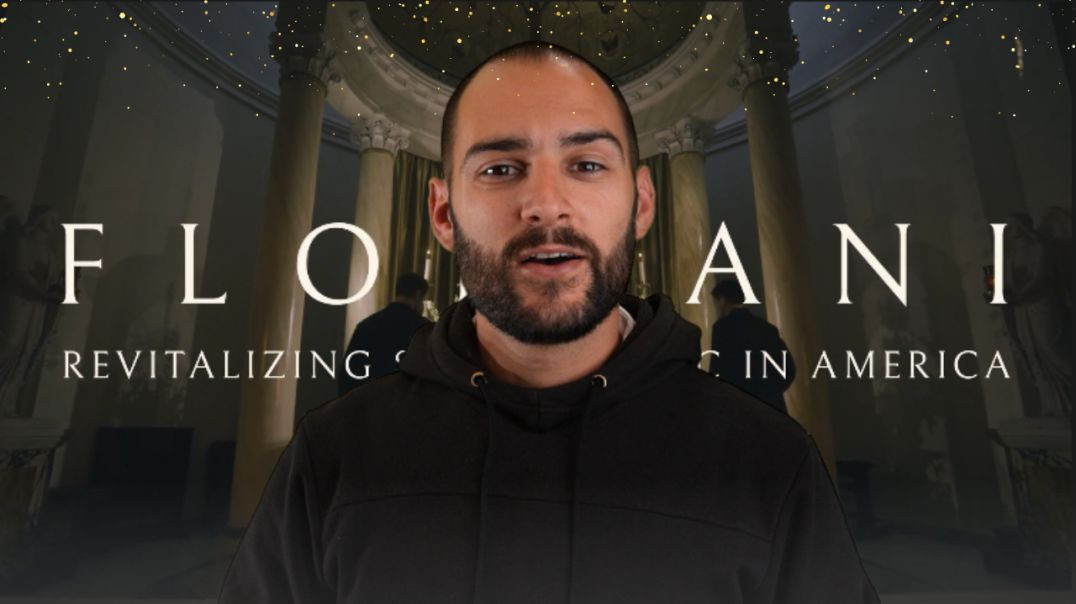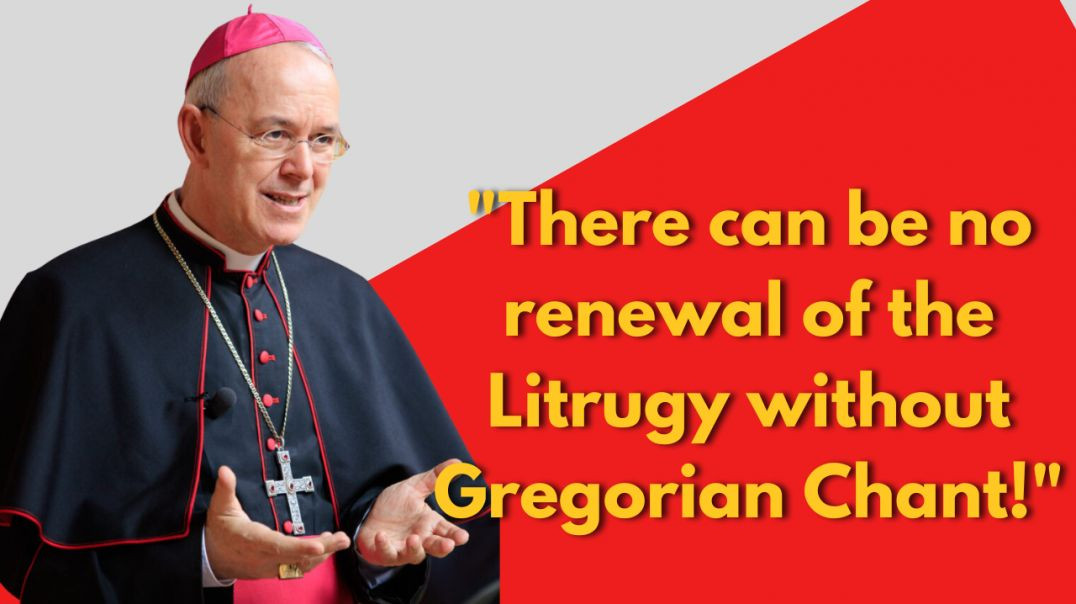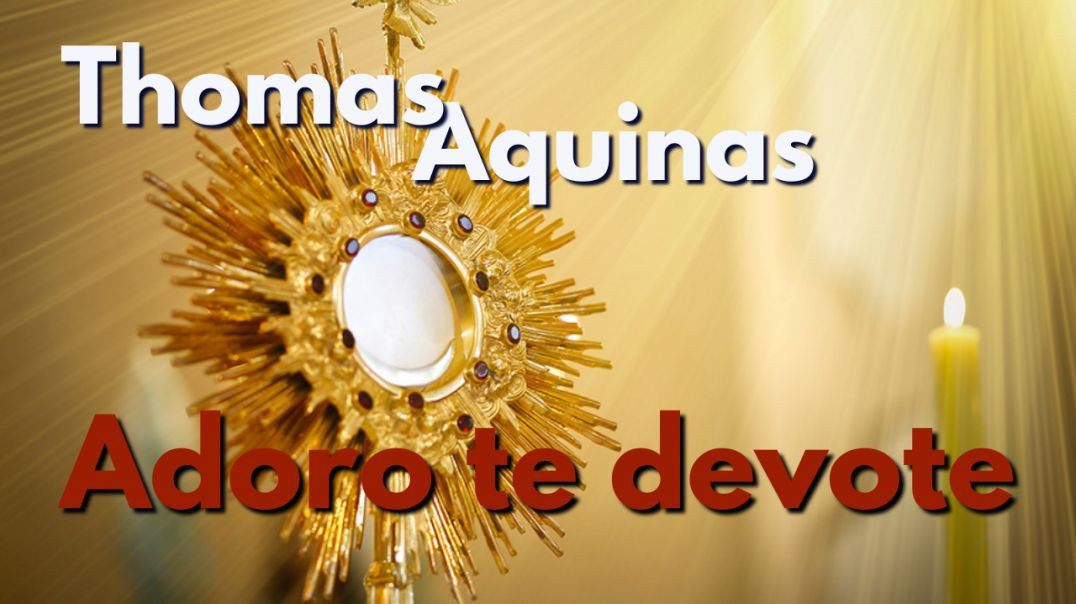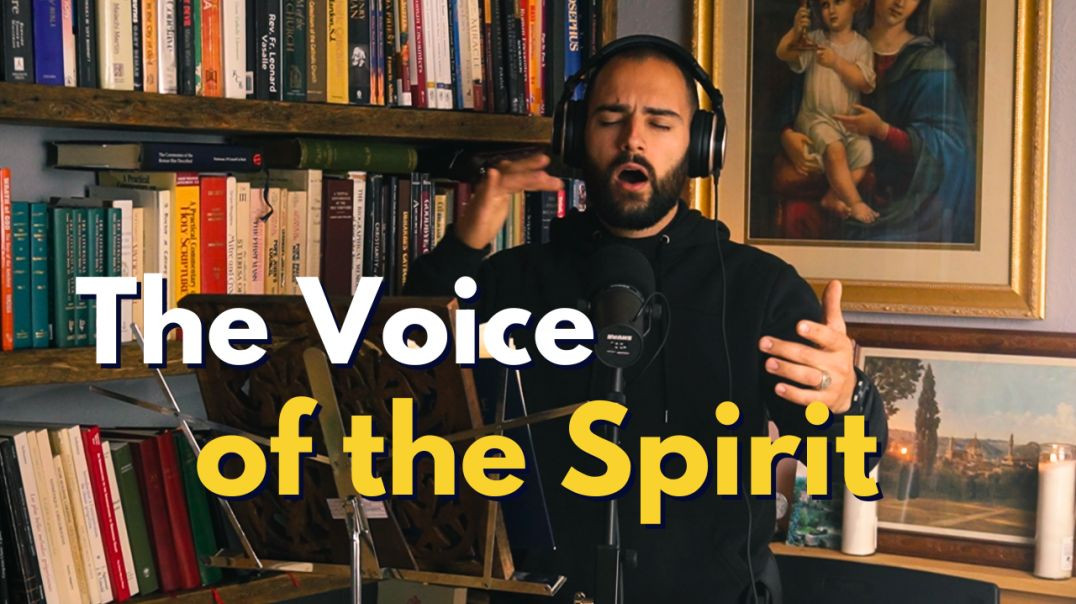
Gregorian Chant Academy
|Subscribers
Latest videos
Free Chant Workshop w/ resources: https://www.floriani.org/gregorian-chant-workshop
Free Chant Mini Course: https://www.gregorianchantacad....emy.com/free-chant-m
Full Online Chant Master Course: https://courses.floriani.org/c....ourses/6716373f-3687
On September 29 we celebrate the feast of St Michael the Archangel and at the Offertory at Mass, we sing this most beautiful of chants. From Dom Gaspar Lefevre's commentary on the liturgy:
"September 29 was formerly dedicated to all the angels ([hence the text selection for the] Introit, Collect, Gradual and Communion) wherefore Pope Boniface II, about A.D. 530, chose that date to dedicate a church in the great circus, at Rome, to St Michael. The Mass composed for the occasion has since been appointed for the 18th Sunday after Pentecost [in the pre Vatican II Missal]; it still relates to the dedication of a church. The present Mass was composed more recently [dating from at least the 9th century]. ... It is [St Michael] who offers to God the prayers of the saints symbolized by incense whose smoke rises toward heaven (hence the text for the Offertory chant and the special Blessing of the incense)."
Make a tax deductible donation at: https://donorbox.org/bring-gca-s-mission-to-life
Join me for this free online mini workshop in Gregorian Chant! In this video you will learn the fundamentals of how to read square notation, dispel any fears about not having previous training, and find awesome resources for further study!
Get on our Early Adopter List for the upcoming Master Course: https://www.floriani.org/gregorian-chant-workshop
Resources mentioned in video: https://www.floriani.org/gregorian-chant-workshop
Join me in my mission to help revive Gregorian Chant and true sacred music in America and throughout the world. Imagine Gregorian Chant and sacred choral music of the highest caliber sung in all parishes throughout the nation! What an impact that would make! Together, with God's help, we can help restore the Church and society.
Make a tax deductible donation for GCA's mission: https://donorbox.org/bring-gca-s-mission-to-life
Online Master Course: https://courses.floriani.org/c....ourses/d5ecf5b5-a509
Free chant mini course: https://www.gregorianchantacad....emy.com/free-chant-m
Become a monthly supporter and schedule a meeting with me on Zoom (optional): https://calendly.com/christopher-51x/30min
"Floriani has produced an authoritative list of Gregorian Chants specifically aimed at delivering us from the powers of darkness." ~ Anonymous Exorcist
Our new album, Chants Of Deliverance, is now available in both digital and physical cd formats, with PDFs of sheet music, lyrics and translations. Visit www.Floriani.org to your copy!
Download other chant recordings: https://www.GregorianChantAcademy.com/
Online Chant Courses: https://courses.floriani.org/
Make a tax deductible donation at: https://www.floriani.org/donate
On the first Sunday of Lent, the text for all of the propers for the Mass are taken from Psalm 90/91 but the Tract sings the entire psalm - save 3 verses. In the Gospel for this Sunday we also read about Christ's 40 day fast in the desert, at the end of which He was tempted by Satan three times. In one of these Satan tempts our Lord to pride by taking him to the pinnacle of the temple and telling him to jump off, for the angels will protect Him, quoting a verse from this Psalm 90. Christ then quotes from another verse of Holy Scripture to show him 'thou shalt not tempt God'. All in all, many of the Fathers of the Church and Desert Fathers tell us that using scripture can be an efficacious way of combatting temptations - in imitation of Our Lord - and that this Psalm is particularly helpful. The drone in this recording is not created using any synths or pitch correction tools to drop my voice. I actually did sing that low... granted, I was sick at the time, so that helped. ;)
Download this song: https://www.GregorianChantAcademy.com/
Online Chant Courses: https://www.GregorianChantAcademy.com/courses
Make a tax deductible donation at: https://www.floriani.org/donate
Lent is a time of year for us to "slow down" (what 'lent' actually means) and to contemplate on our sins, how much we are in need of God's redeeming grace and to make loving acts of reparation. May this playlist of Gregorian Chants for Lent offer some peace for your mind and soul and help you in your lenten meditations to grow closer to God.
Download my chant recordings at: https://www.GregorianChantAcademy.com/
Online Chant Courses: https://www.GregorianChantAcademy.com/courses
Make a tax deductible donation here: https://www.floriani.org/donate
Merry Christmas! "Puer Natus In Bethlehem" is a devotional Christmas hymn with text from the 13th century set to a melody from the 14th century. I tired to add the lyrics on the screen but the video kept having rendering issues for some reason, so I had to remove them. Lyric translation below.
Download this song: https://www.GregorianChantAcademy.com/
Online Chant Courses: https://www.GregorianChantAcademy.com/courses
Make a one-time or monthly tax deductible donation at:
https://www.floriani.org/donate
English translation:
A child is born in Bethlehem, Alleluia.
Wherefore Jerusalem rejoices. Alleluia, alleluia.
The Son assumed flesh, alleluia.
Of God the Father Most High, alleluia.
By a message from Gabriel, alleluia.
A virgin has conceived a son, alleluia.
As a bridegroom from the chamber, alleluia.
He passed through His mother's womb, alleluia.
Here He lies in the manger, Alleluia.
Who reigns without limit. Alleluia
And an angel to the shepherds, alleluia.
Reveals that He is the Lord, alleluia.
The kings of Sheba come, Alleluia.
They offer gold, incense, and myrrh. Alleluia
Each entering the house, Alleluia.
They greet the new-born King of kings. Alleluia
He was born of a virgin mother, Alleluia.
He Who Is light from light, Alleluia.
Without the the serpent's wound, Alleluia.
He comes of our blood; Alleluia
He is like us in the flesh, Alleluia.
Yet different, without sin; Alleluia
That us men redeemed, Alleluia.
Like God and Himself should be. Alleluia
In the joy of this birthday, Alleluia.
Let us bless the Lord: Alleluia.
Praise be to the Holy Trinity, Alleluia.
Let us give thanks to God. Alleluia
The Great Responsory "Aspiciens a longe" is the first responsory of Matins for the 1st Sunday of Advent. This melody first appears in the Antiphoner of Hartker, circa AD 990-1000. It can be found in current books such as the Processionale Monasticum or the Liber Hymnarius, both from Solesmes, with some slight melodic variances.
Translation:
I look from afar:
and behold, I see the power of God coming,
and a cloud covering the whole earth.
Go ye out to meet Him and say:
Tell us if Thou art the One Who is to reign over the people of Israel.
V/ 1. And all the nations and the children of men, the rich and the poor together .
Go ye out to meet Him and say:
Tell us if Thou art the One Who is to reign over the people of Israel.
V/ 2. Look, Who rulest Israel,
Who leadest Joseph like a sheep,
Who sittest upon the cherubim.
Tell us if Thou art the One Who is to reign over the people of Israel.
V/ 3. Lift up your gates, O ye princes, and be ye lifted up, and He shall enter in.
Who is to reign over the people of Israel.
(not included in the original manuscript or recording, but part of the liturgical tradition)
Glory be to the Father, and to the Son,
and lo, I see the pow’r of God coming,
and to the Holy Ghost.
and a cloud covering the whole earth.
Go ye out to meet him and say:
Tell us if Thou art the One Who is to reign over the people of Israel.
Download this song: https://www.GregorianChantAcademy.com/
Online Chant Courses: https://www.GregorianChantAcademy.com/courses
Give a tip or become a monthly supporter at: https://www.GregorianChantAcademy.com/give
or
https://www.floriani.org/support-us
Special Thanks to my top Patreon and BMACoffee supporters:
Maurisa Mayerle, Mary Catherine Maxian, Sheila McBride Mullaly, Andy Mozisek, Sergio Ubach, Chavel Dixon, Alicja and Herve Blanquart, Mara Schumaker, Catherine Fagan, Ed Clark, Daniel Boyer, John Lyssikatos, Collen Lunt, Ted Naff, Mary Lunzer, Boguslaw Czerniakowski, Andrew Hattrup, Paul Hattrup, Noreen Cabili, Shirley Dunnells
Some of my most favorite chants are from the 1st Sunday of Advent. Hear this beautiful communion antiphon "Dominus dabit benignitatem (The Lord giveth goodness)".
Download this song: https://www.GregorianChantAcademy.com/
Online Chant Courses: https://www.GregorianChantAcademy.com/courses
Give a tip or become a monthly supporter at: https://www.GregorianChantAcademy.com/give
or
https://www.floriani.org/support-us
Special Thanks to my top Patreon and BMACoffee supporters:
Maurisa Mayerle, Mary Catherine Maxian, Sheila McBride Mullaly, Andy Mozisek, Sergio Ubach, Chavel Dixon, Alicja and Herve Blanquart, Mara Schumaker, Catherine Fagan, Ed Clark, Daniel Boyer, John Lyssikatos, Collen Lunt, Ted Naff, Mary Lunzer, Boguslaw Czerniakowski, Andrew Hattrup, Paul Hattrup, Noreen Cabili, Shirley Dunnells
Some of my most favorite chants are from the 1st Sunday of Advent. Hear this beautiful Gradual "Universi qui te expectant (All who wait on Thee shall never be confounded)". I love the incredible range of this chant as well: descending to a low LA in the very beginning, and rising all the way up to a high MI, a range of an octave and a half. The acoustics in this recording are a realistic capturing of an actual location (known as a convolution reverb). This particular reverb is from the Sterling Castle Chapel in Scotland.
Download this song: https://www.GregorianChantAcademy.com/
Online Chant Courses: https://www.GregorianChantAcademy.com/courses
Give a tip or become a monthly supporter at: https://www.GregorianChantAcademy.com/give
or
https://www.floriani.org/support-us
Special Thanks to my top Patreon and BMACoffee supporters:
Maurisa Mayerle, Mary Catherine Maxian, Sheila McBride Mullaly, Andy Mozisek, Sergio Ubach, Chavel Dixon, Alicja and Herve Blanquart, Mara Schumaker, Catherine Fagan, Ed Clark, Daniel Boyer, John Lyssikatos, Collen Lunt, Ted Naff, Mary Lunzer, Boguslaw Czerniakowski, Andrew Hattrup, Paul Hattrup, Noreen Cabili, Shirley Dunnells
Some of my most favorite chants are from the 1st Sunday of Advent. Hear this beautiful Introit (entrance) antiphon "Ad te levavi (To Thee I lift up my soul)". There also exists a trope from the 12th century about Pope St Gregory the Great, "Sanctissimus namque Gregorius" and is traditionally sung as a prelude to this introit, the very first of the liturgical year. All of the Propers for this Sunday - with the exception of the Communion antiphon - share the same text from Psalm 24 and express the confidence that we should have in God's mercy to help us overcome our enemies: the world, the flesh and the devil. Advent is a time for spiritual preparation for Christmas and is therefore a time of Penance, not partying as the world does during this time. Let us spend more time in silence and prayer during this season so that we may prepare our hearts ("prepare the way of the Lord") and be ready for Him when He comes on Dec 25. May God bless you and have a blessed Advent.
The acoustics in this recording are a realistic capturing of an actual location (known as a convolution reverb). This particular reverb is from the Sterling Castle Chapel in Scotland.
Download this song: https://www.GregorianChantAcademy.com/
Online Chant Courses: https://www.GregorianChantAcademy.com/courses
Give a tip or become a monthly supporter at: https://www.GregorianChantAcademy.com/give
or
https://www.floriani.org/support-us
Special Thanks to my top Patreon and BMACoffee supporters:
Maurisa Mayerle, Mary Catherine Maxian, Sheila McBride Mullaly, Andy Mozisek, Sergio Ubach, Chavel Dixon, Alicja and Herve Blanquart, Mara Schumaker, Catherine Fagan, Ed Clark, Daniel Boyer, John Lyssikatos, Collen Lunt, Ted Naff, Mary Lunzer, Boguslaw Czerniakowski, Andrew Hattrup, Paul Hattrup, Noreen Cabili, Shirley Dunnells
The Sanctus is the oldest of all of the Ordinary prayers.
Download these songs: https://www.GregorianChantAcademy.com/
Online Chant Courses: https://www.GregorianChantAcademy.com...
Give a tip or become a monthly supporter at: https://www.GregorianChantAcademy.com...
or
https://www.floriani.org/support-us
Special Thanks to my top Patreon and BMACoffee supporters:
Maurisa Mayerle, Mary Catherine Maxian, Sheila McBride Mullaly, Andy Mozisek, Sergio Ubach, Chavel Dixon, Alicja and Herve Blanquart, Mara Schumaker, Catherine Fagan, Ed Clark, Daniel Boyer, John Lyssikatos, Collen Lunt, Ted Naff, Mary Lunzer, Boguslaw Czerniakowski, Andrew Hattrup, Paul Hattrup, Noreen Cabili, Shirley Dunnells
"Glory to God in the highest, and on earth, peace to men of good will." ~ Luke 2: 14
According to musicologists Willi Apel and David Hiley, the Liber Pontificalis says that Pope Symmachus, around the year AD 510, extended the use of the Gloria [in excelsis Deo] over the entire year, for Sundays and feast of Martyrs. Before this (as well as for sometime after) it was sung as a hymn of thanksgiving at the end of the night office of Matins. While the first words of this prayer are scriptural and from the hymn which the angels sang to the shepherds on the first Christmas night when our Savior was born (Luke 2:14), the rest of this hymn is non-scriptural and in prose. The late Dom Daniel Saulnier of Solesmes (and my former mentor) adds this in his book "Gregorian Chant: A Guide" and translated by Dr Ed Schaefer: "The Gloria, attested in Greek and Syrian sources of the fourth century, may go back to a Greek origin in the second century. The Latin text first appears in the West in the seventh century and stabilizes by the ninth century. ... In the Roman liturgy the Gloria was admitted at first only for the Mass of the Christmas night, due to the appropriateness of its text. Soon extended to the major feasts of the year (by Pope Symmachus as mentioned above), it remained for a time reserved to the bishop. ...After the intonation, the text is composed of two parts: an expression of praise to the Father and one to the Son. The terminating mention of the Holy Spirit gives to the whole a Trinitarian character that does not seem to be early: it was most likely added after quarrels related tot eh development of the dogma of the Trinity."
Download this song: https://www.GregorianChantAcademy.com/
Online Chant Courses: https://www.GregorianChantAcademy.com...
Give a tip or become a monthly supporter at: https://www.GregorianChantAcademy.com...
or
https://www.floriani.org/support-us
Special Thanks to my top Patreon and BMACoffee supporters:
Maurisa Mayerle, Mary Catherine Maxian, Sheila McBride Mullaly, Andy Mozisek, Sergio Ubach, Chavel Dixon, Alicja and Herve Blanquart, Mara Schumaker, Catherine Fagan, Ed Clark, Daniel Boyer, John Lyssikatos, Collen Lunt, Ted Naff, Mary Lunzer, Boguslaw Czerniakowski, Andrew Hattrup, Paul Hattrup, Noreen Cabili, Shirley Dunnells
According to the musicologist Willi Apel, the Kyrie Eleison (Greek for "Lord, have mercy) was introduced into the Gallican Rite Mass (now defunct for centuries) at the Council of Vaison in the AD 529, in a statement which implies that it had been introduced sometime before into the Roman Mass. Pope Gregory the Great then added the Christe Eleison sometime during his pontificate, between AD 590 and 604. With each invocation being sung three times (in the EF), this is one of the greatest Trinitarian pleas for mercy.
Lord, have mercy. Lord, have mercy. Lord, have mercy. Christ, have mercy. Christ, have mercy. Christ, have mercy. Lord, have mercy. Lord, have mercy. Lord, have mercy.
Download this song and others: https://www.GregorianChantAcademy.com/
Online Chant Courses: https://www.GregorianChantAcademy.com...
Give a tip or become a monthly supporter at: https://www.GregorianChantAcademy.com...
or
https://www.floriani.org/support-us
Special Thanks to my top Patreon and BMACoffee supporters:
Maurisa Mayerle, Mary Catherine Maxian, Sheila McBride Mullaly, Andy Mozisek, Sergio Ubach, Chavel Dixon, Alicja and Herve Blanquart, Mara Schumaker, Catherine Fagan, Ed Clark, Daniel Boyer, John Lyssikatos, Collen Lunt, Ted Naff, Mary Lunzer, Boguslaw Czerniakowski, Andrew Hattrup, Paul Hattrup, Noreen Cabili, Shirley Dunnells
The text of this chant is taken from the book of Ecclesiasticus/Sirach 36:18 and Psalm 121:1, and, in addition to the 24th Sunday of Pentecost (O.F.)/18th Sunday after Pentecost (E.F.), is used for the Votive Mass for Peace. May all countries experiencing war and persecution be granted peace and grace. Up next will be a prayer for the Church and its Synod.
"O God, from whom all holy desires, all right counsels and all just works do proceed; grant to Thy servants that peace which the world cannot give; that our hearts may be disposed to obey Thy commandments, and the fear of enemies being removed, our times, by Thy protection, may be peaceful. Through Our Lord, Jesus Christ, who livest and reignest with Thee, in the unity of the Holy Spirit, one God, world without end. Amen." ~ Collect from the Votive Mass for Peace.
Download this song: https://www.GregorianChantAcademy.com/
Online Chant Courses: https://www.GregorianChantAcademy.com/courses
Give a tip or become a monthly supporter at: https://www.GregorianChantAcademy.com/give
or
https://www.floriani.org/support-us
Special Thanks to my top Patreon and BMACoffee supporters:
Maurisa Mayerle, Mary Catherine Maxian, Sheila McBride Mullaly, Andy Mozisek, Sergio Ubach, Chavel Dixon, Alicja and Herve Blanquart, Mara Schumaker, Catherine Fagan, Ed Clark, Daniel Boyer, John Lyssikatos, Collen Lunt, Ted Naff, Mary Lunzer, Boguslaw Czerniakowski, Andrew Hattrup, Paul Hattrup, Noreen Cabili, Shirley Dunnells
Chant recordings:
https://www.youtube.com/watch?v=2teDH6e87Wc&list=PL0eu6_WptaE9ayq7R9je44gFZBXWKe7Xr
Interviews:
https://www.youtube.com/watch?v=afgtx1r5xVo&list=PL0eu6_WptaE9xJwB_aLbM53A4tIfgGfYS
Join me as I sit down for an interview with the members of Harpa Dei to discover more about their lives and their music (November, 2021). Ever since I discovered Harpa Dei in early 2021, I have been a huge fan! A few months after this interview, they asked me if I and my schola friends could assist them in their recording of the song of the prayer on the St Benedict medal. We have been very good friends ever since.
Harpa Dei: https://spiritustv.com/@HarpaDei
St Benedict medal prayer song: https://www.youtube.com/watch?v=KGiwGcmBv1Q
Gregorian Chant Academy downloadable chants: https://www.gregorianchantacademy.com
Online Chant Courses: https://www.gregorianchantacademy.com/courses
Donate (tax-deductible): https://www.floriani.org/donate (Floriani is now the parent of GCA)
I am very happy to bring you three exciting new announcements:
1) regarding the 2023 International Chant Conference
2) regarding exciting new developments in the Academy and
3) ... you'll have to watch to the end to find out!
2023 online Chant Conference: https://www.GregorianChantAcademy.com/conference
Floriani Sacred Music:
Website: https://www.floriani.org
Instagram: https://www.instagram.com/florianisacredmusic/
YouTube: https://www.youtube.com/c/FlorianiSacredMusic
Square Notes Podcast: https://sacredmusicpodcast.com/
Pints With Aquinas: https://www.youtube.com/@PintsWithAquinas
Pipes With Augustine:
YouTube: https://www.youtube.com/@PipesWithAugustine
SpiritusTV: https://spiritustv.com/@PipesWithAugustine
Give a tip or become a monthly supporter at: https://www.GregorianChantAcademy.com/give
or
https://www.floriani.org/support-us
Special Thanks to my top Patreon and BMACoffee supporters:
Maurisa Mayerle, Mary Catherine Maxian, Sheila McBride Mullaly, Andy Mozisek, Sergio Ubach, Chavel Dixon, Alicja and Herve Blanquart, Mara Schumaker, Catherine Fagan, Ed Clark, Daniel Boyer, John Lyssikatos, Collen Lunt, Ted Naff, Mary Lunzer, Boguslaw Czerniakowski, Andrew Hattrup, Paul Hattrup, Noreen Cabili, Shirley Dunnells
His excellency delivers a wonderful lecture on the incredible importance of Gregorian Chant in the renewal of the liturgy at the world's first online International Conference on Gregorian Chant on Oct 2, 2022.
To learn about and register for the 2023 Conference, visit:
https://www.GregorianChantAcademy.com/conference
Download my chant recordings: https://www.GregorianChantAcademy.com/
Online Chant Courses: https://www.GregorianChantAcademy.com/courses
Give a tip or become a monthly supporter at: https://www.GregorianChantAcademy.com/give
or
https://www.floriani.org/support-us
Special Thanks to my top Patreon and BMACoffee supporters:
Maurisa Mayerle, Mary Catherine Maxian, Sheila McBride Mullaly, Andy Mozisek, Sergio Ubach, Chavel Dixon, Alicja and Herve Blanquart, Mara Schumaker, Catherine Fagan, Ed Clark, Daniel Boyer, John Lyssikatos, Collen Lunt, Ted Naff, Mary Lunzer, Boguslaw Czerniakowski, Andrew Hattrup, Paul Hattrup, Noreen Cabili, Shirley Dunnells
Written by St Thomas Aquinas in the 13th century, probably in the wake of the declaration of the feast of Corpus Christi, the "Adoro te devote" was not originally intended for any liturgical use but most likely used as a private prayer for Thomas' daily adoration of the Blessed Sacrament, but was later incorporated into the Roman Missal of 1570 after the Council of Trent. St Thomas also composed the Sequence "Lauda Sion", and the hymns "Pange Lingua", "Sacris Solemniis" and "Verbum Supernum".
Download this song at: https://www.GregorianChantAcademy.com/
Sign up for an online Chant Course at: https://www.GregorianChantAcademy.com/courses
Give a tip or become a monthly supporter at: https://www.GregorianChantAcademy.com/give
GCA is now a division of Floriani Sacred Music: https://www.floriani.org
Special Thanks to my top Patreon and Coffee supporters:
Sergio Ubach, Maurisa Mayerle, Mary Catherine Maxian, Andy Mozisek, John Lyssikatos, Sheila McBride Mullaly, Alicja and Herve Blanquart, Collen Lunt, Ted Naff, Andrew Hattrup, Paul Hattrup, Noreen Cabili, Shirley Dunnells, Chavel Dixon
"This Introit resounds with incomparable brilliance and melody. Gregorian chant rarely achieves such enthusiasm. The words contain an oracle from the Book of Wisdom (1:7), which is fulfilled today. It is the divine Spirit pouring out upon the world, and as a guarantee of His presence, giving to the holy Apostles the knowledge of the Word from which He is the source." ~ Dom Prosper Gueranger.
Download this song at: https://www.GregorianChantAcademy.com/
Sign up for an online Chant Course at: https://www.GregorianChantAcademy.com/courses
Give a tip or become a monthly supporter at: https://www.GregorianChantAcademy.com/give
Special Thanks to my top Patreon and Coffee supporters:
Sergio Ubach, Maurisa Mayerle, Mary Catherine Maxian, Andy Mozisek, John Lyssikatos, Sheila McBride Mullaly, Alicja and Herve Blanquart, Collen Lunt, Ted Naff, Andrew Hattrup, Paul Hattrup, Noreen Cabili, Shirley Dunnells, Chavel Dixon

